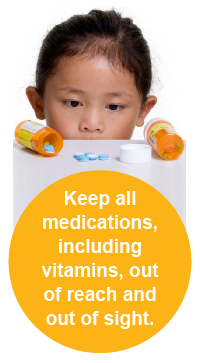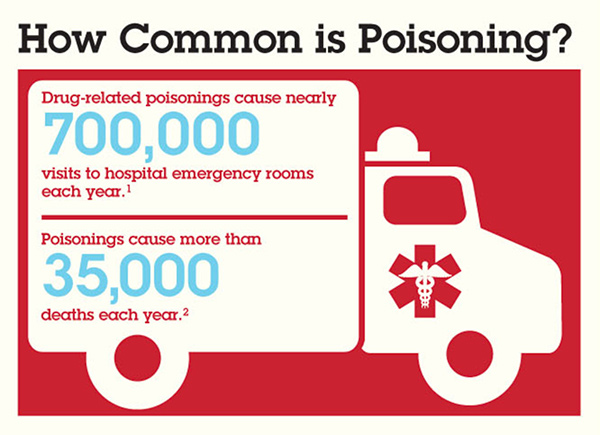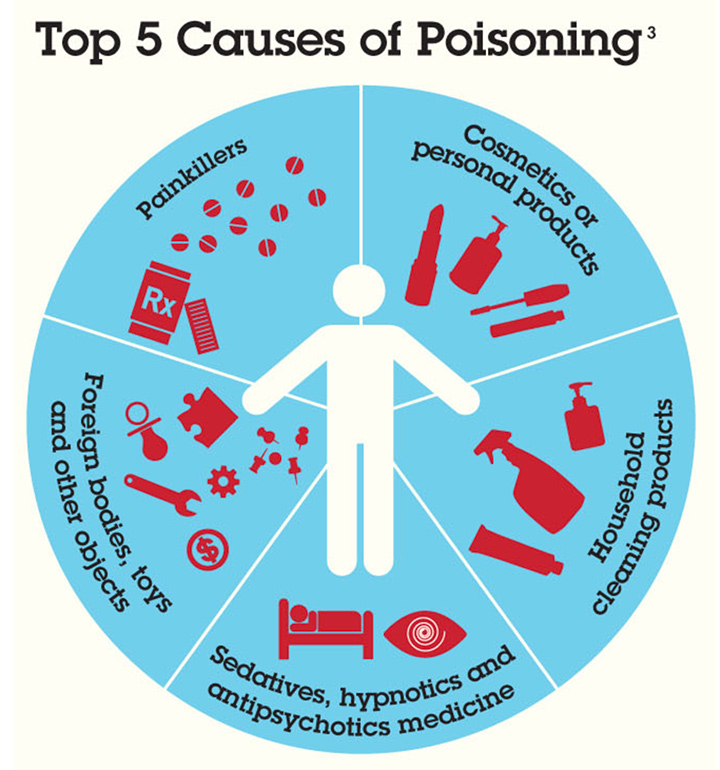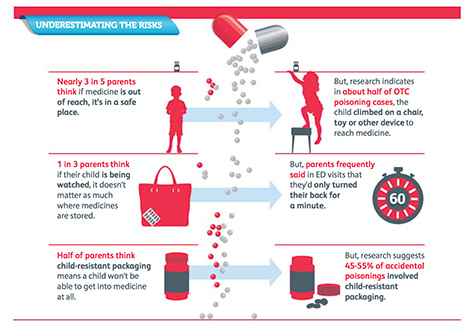Poison Prevention Week Begins March 19th
Sharing is caring!
National Poison Prevention Week is March 19th – 25th
Medications are the leading cause of child poisoning. In 2013, over 59,000 children were seen in emergency room for medicine poisoning. That’s one child every nine minutes. Almost all of these visits are because the child got into medicines during a moment alone. 
Top Tips for Medication Safety
- Put all medicine up and away and out of sight. In 86% of emergency department visits for medicine poisoning, the child got into medicine belonging to a parent or grandparent.
- Consider places where kids get into medicine. Kids get into medication in all sorts of places, like in purses and nightstands. Place purses and bags in high locations, and avoid leaving medicine on a nightstand or dresser. In 2 out of 3 emergency room visits for medicine poisoning, the medicine was left within reach of a child.
- Consider products you might not think about as medicine. Health products such as vitamins, diaper rash creams, eye drops and even hand sanitizer can be harmful if kids get into them. Store these items up, away and out of sight, just as you would traditional medicine.
- Only use the dosing device that comes with the medicine. Kitchen spoons aren’t all the same, and a teaspoon or tablespoon used for cooking won’t measure the same amount of medicine as a dosing device.
- Write clear instructions for caregivers about your child’s medicine. When other caregivers are giving your child medicine, they need to know what medicine to give, how much to give and when to give it. Using a medicine schedule can help with communication between caregivers.
- Save the Poison Help line in your phone: 1-800-222-1222. Put the toll-free number for the Poison Control Center into your home and cell phones. You can also put the number on your refrigerator or another place in your home where babysitters and caregivers can see it. And remember, the Poison Help line is not just for emergencies, you can call with questions about how to take or give medicine.
“It’s important to take a close look at the ingredients in children’s medication, especially in combination products. For example, if two products contain acetaminophen, you could be giving a double dose and this can be harmful to the liver. I prefer to give my children medications with single ingredients, that way I not only control exactly how much of each medication they receive, but I avoid giving medications that may not be necessary.” – Corrie Crews PharmD, Clinical Pharmacist, Kaiser Permanente
In 2017, Safe Kids conducted a nationwide online survey among 2,000 parents with children under age 6 in order to better understand their knowledge, attitudes and behaviors when it comes to the safe storage of medicine.
The survey findings revealed a striking gap between parents’ knowledge of what they should do to protect kids from accidental medicine poisoning and their own behavior or attitudes. In fact, while 9 in 10 parents agree itis important to store all medicine out of sight and up high after every use, nearly 7 in 10 report that, in reality, they often store medicine within a child’s sight – on a shelf or surface at or above counter height. Read the full report here…
What is National Poison Prevention Week?
In 1961, Congress established National Poison Prevention Week as a national celebration each year during the third full week of March. The observance is sponsored by the National Poison Prevention Week Council, a group of public and private partners committed to reducing unintentional poisonings, promoting poison prevention, and coordinating annual activities to promote National Poison Prevention Week. Learn more about how Council members are observing this week (source: www.poisonprevention.org)
Poison Help is a national campaign funded by the U.S. Department of Health and Human Services’ Health Resources and Services Administration (HRSA) to educate people about how to prevent a poisoning from occurring and how to respond should one occur. The Poison Help Web site, www.PoisonHelp.hrsa.gov, provides resources for parents, teachers, health professionals, and local businesses. It can be used to help with poison prevention activities and provides information for you to locate and contact your local poison center. People can also contact their local poison center through the toll-free Poison Help line, 1-800-222-1222, for educational materials, information, and assistance with a poisoning emergency in 161 languages.


Follow along on our events page for local events in your community related to poison prevention!
Join us on Facebook



